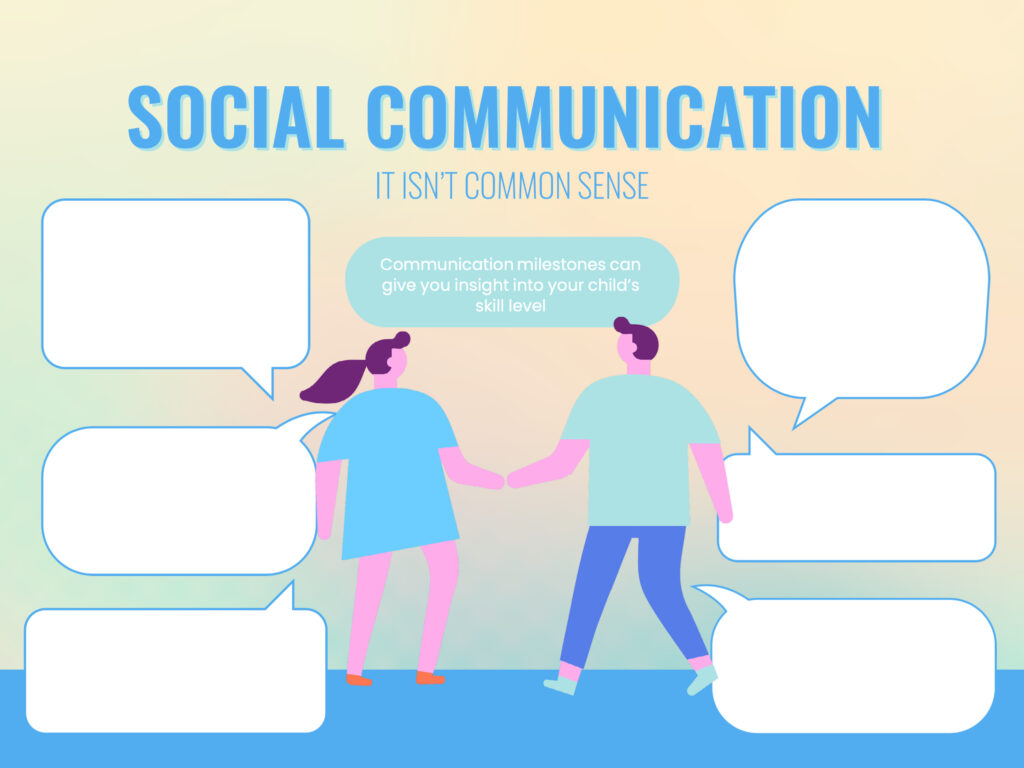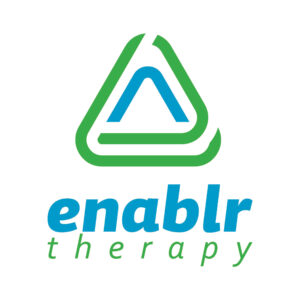
Many of us have used the phrase, “it’s just common sense….” or “everyone knows…” when talking about a social expectation or norm. However, the reality is that some people don’t know. Some conditions like Autism, Down Syndrome, Social Communication Disorder, and Brain Injuries make it difficult for an individual to understand social communication.
Social Communication
Social communication is how a person uses language skills (verbal and nonverbal) to interact and communicate with others within different social settings. Social rules are often unspoken and nuanced. What is appropriate in one setting, relationship, or age level may not be appropriate in another.
For example:
It can be appropriate to greet your mom or grandmother with a big hug but you definitely should not greet the cashier at the grocery store, a police officer, or a stranger this way.
It may be fine for a toddler to run around in their diaper but an adult should wear more than just underwear when out in public.
Speaking loudly can be fine if you are outside but it will bring a quick “shhh” from a librarian.
Sometimes there are special rules for specific events. For instance, at weddings, you stand when a bride walks down the aisle. At a symphony concert, you don’t clap every time the music ends, but hold your applause until every movement of the entire piece is played.
It is impossible to know social expectations for every single situation. In fact, all of us make mistakes every now and then. But for some individuals, mastering social communication’s “hidden curriculum” can bring extra challenges to relationships with family, friends, neighbors, and strangers, as well as have a profound impact on education, employment, and daily life experiences.
Communication Milestones For Your Child
Social communication skills develop from infancy and expand with age. Below is a list of social communication milestones. Typically, children develop milestones around the same ages. Monitoring milestones can give insight into your child’s skill level and may help to identify any potential concerns. However, please remember, each child is unique and may progress at a different rate.
Under 1 Year
- Looks at others and makes eye contact
- Engages in verbal turn taking
- May have separate anxiety
1-2 Years
- Response to facial expressions
- Laughs with others socially
- Learns to get someone’s attention
- Imitates a simple play actions
- Gestures or say ‘hi’ and ‘bye
2-3 Years Old
- Starts to pretend to be another person in play like Mommy or Daddy
- Increases number of interactive turns with others
- Takes a few turns in a simple game like rolling a ball back and forth
- Directly asks for things that they want
- Plays next to other kids
3-4 Years Old
- Requests permission to do things
- Begins to guess what happens in a story and make inferences
- Uses play themes that are outside of their life experiences
- Talks about feelings and emotions
- Understands right and wrong
- Shows concern for others
4-5 Years Old
- Plays games that have rules like simple board games or hide and seek
- Plays cooperatively with other children
- Talks about feelings and emotions more
- Uses indirect request like “I am thirsty” to ask for a drink
- Tells a sequence of events
5-6 Years Old
- Play is complex and includes novel or fantasy plots
- Can praise or compliment others as well as give insult
- Starts to make promises as well as threats
- Self advocates and negotiates during play
- Has a sense of humor and tells jokes
- Makes own friends
Therapy’s Role
Speech language pathologists work with individuals to develop underlying skills and generalization of social communication and competencies. If you have concerns about social communication skills for yourself or your child, Enablr Therapy can help! Enablr Therapy has a team of experienced and skilled speech language pathologists that can work with adults or children.
Reference
American Speech-Language-Hearing Association. (n.d.). Components of Social Communication. Retrieved from https://www.asha.org/practice-portal/clinical-topics/social-communication-disorder/components-of-social-communication/



